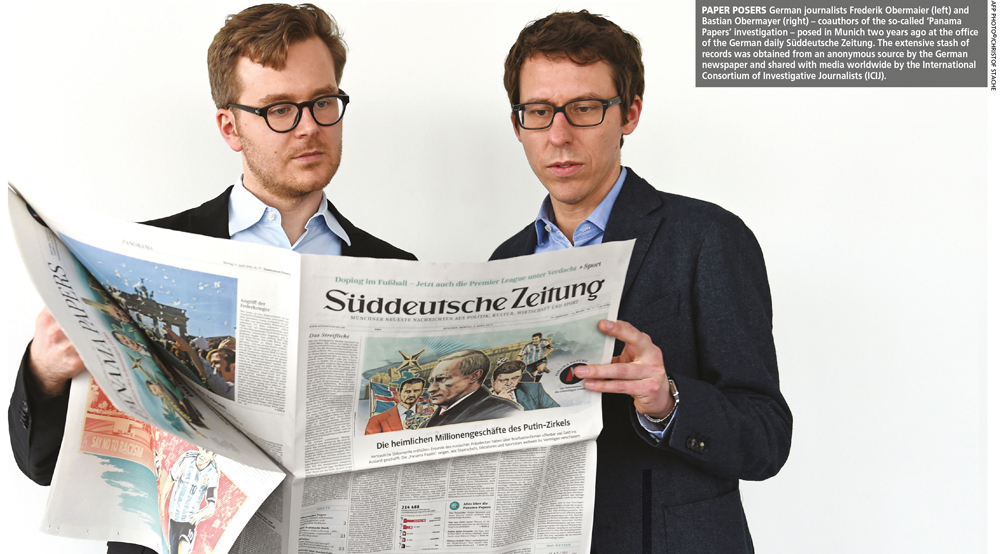UNEXPLAINED WEALTH
PLUGGING THE PLUNDERERS
Rajika Jayatilake discusses measures taken by the UK to investigate asset based corruption

The plunder of national wealth through corruption pushes poor countries into greater poverty. This is a contemporary global reality. The US’ first ever Professor of Sociology William Graham Sumner once said that “the real danger of democracy is that the classes which have the power under it will assume all the rights and reject all the duties – that is, they will use the political power to plunder those who have.”
This is a tragic reality in most developing countries today. And history repeats itself in these countries because of the financial secrecy prevailing in the developed world.
The Financial Secrecy Index compiled by Tax Justice Network, a UK based independent international advocacy group, indicates which nations offer a safe haven for plunderers seeking to evade taxes in their own countries. The 2018 index places Switzerland in first place with the US in second and the Cayman Islands coming in a close third.
These three jurisdictions currently appear to be the largest contributors to global financial secrecy. The index of safe havens for tax evaders has been calculated annually since 2015. The ranking, according to secrecy and scale of activities, is based on data from 92 countries and territories.
British forensic auditor, economist and cofounder of Tax Justice Network John Christensen says the index helped “the public understand that tax haven is much, much more deeply embedded in the entire global economy and it isn’t just small players with palm trees; it includes some of the biggest and most powerful countries in the world.”
The UK is trying to overturn its adverse reputation of being a haven for ill-gotten gains. In recent years, its luxury property market has been rocked by scandals of corrupt individuals stashing their illicit wealth in expensive real estate. Britain’s National Crime Agency, which is focussed on combating serious and organised crime, notes that over US$ 100 billion of illicit funds move in and out of London every year – most of it plundered from state coffers of countries around the world.
Since 31 January this year, British law enforcement has a powerful new investigative tool named Unexplained Wealth Orders (UWO) to investigate and deal with corruption.
Transparency International UK, which was at the forefront along with other groups advocating for this new investigative power for British law enforcement, says that the UWO “are particularly useful when there is no realistic prospect of cooperation or conviction in the country of origin but there are sufficient grounds for suspicion that an asset has been acquired with the proceeds of corruption.”
A circular from the British Home Office says that UWO “can also be applied to politicians or officials from outside the European Economic Area (EEA) or those associated with them – i.e. Politically Exposed Persons (PEP). A UWO made in relation to a non-EEA PEP would not require suspicion of serious criminality.”
UWO will give law enforcement the power to interrogate politicians, public figures and criminals on their assets, compelling them to explain their acquisition of such wealth and then seize the assets in the absence of convincing explanations.
The Head of Advocacy at Transparency International UK Rachel Davies Teka notes: “Before UWO came into force, it was very easy for corrupt politicians from overseas to take their wealth and actually bury it in the UK sectors such as property.”
Meanwhile, adding to consternation of the world’s corrupt are the Paradise Papers – the latest massive leak of information to the public in November 2017, considered second only to the Panama Papers of 2016. The Paradise Papers comprise 13.4 million documents and mostly focusses on Appleby – a 119-year-old Bermuda law firm that serves an exclusive clientele of blue-chip corporations and wealthy individuals.
Appleby helps its clients to reduce their tax burden, conceal ownership of assets like companies, real estate, private yachts and aircraft, and set up massive offshore trusts sometimes holding billions of dollars. A German newspaper initially got hold of the Paradise Papers, and shared them with the International Consortium of Investigative Journalists and over 380 journalists.
As 19th century French economist Claude-Frédéric Bastiat explained: “When plunder becomes a way of life for a group of men in a society, over the course of time they create for themselves a legal system that authorises it and a moral code that glorifies it.”
According to US based Global Financial Integrity (GFI), developing countries lost US$ 700 billion through “trade misinvoicing,” which is a system of shifting funds illegally across national boundaries, deliberately misreporting the commercial value of trade on invoices. The financial loss to countries of this strategy far outweighs the value of foreign aid received by these nations. GFI also says that since 1980, the secret flight of capital from developing countries is over 13 trillion dollars.
A long time ago, Greek philosopher Plato said that “good people do not need laws to tell them to act responsibly while bad people will find a way around the law.” And more recently, billionaire philanthropist Bill Gates observed: “Corruption is one of the most common reasons I hear in views that criticise aid.”





Leave a comment